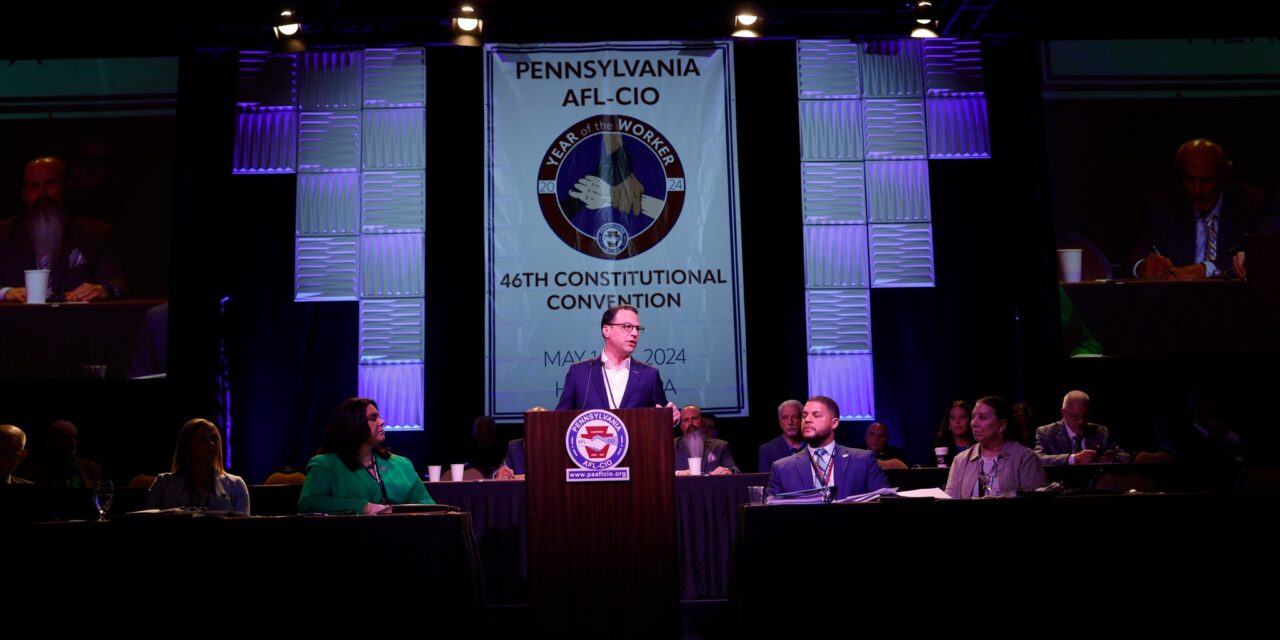A plan to increase green energy usage and limit carbon emissions is meeting resistance from industry, who says it could increase residents’ energy prices by $2 billion annually.
Risking the ire of Pennsylvania union workers, Gov. Josh Shapiro is advocating for policies that increase the use of renewable energy sources in the state. Shapiro’s proposal, which in part will limit greenhouse gas emissions within some of the state’s most energy-intensive industries, has some allies nervous, saying it could “drown his administration in political infighting” or set Shapiro on a path to the White House.
While the Governor calls his philosophy an “all of the above” approach on energy production and usage, he is already attracting dissent from Republicans and Democrats alike. According to Politico, The GOP Senate Majority Leader blasted Shapiro’s clean energy ambitions as “cap and tax” while a leading Democrat in the Pennsylvania House believes the governor should refocus his efforts on joining a multi-state greenhouse gas reduction compact.
Along with capping the amount of emissions in the state, Shapiro’s proposal would also mandate a nearly 100% increase in the amount of electricity from renewable sources used in the state by 2035.
The shift to heavier reliance on renewable energy leaves some skeptical as to the “true cost” of renewable use: factoring in the full life cycle of manufacturing, repairing, recycling, and eventual disposal of items like solar panels and batteries, one study suggests the cost of solar power is actually doubled.
Some also argue that wind and solar may be cheap, but only if it’s constantly and consistently sunny and windy. Otherwise, once reliability is factored in, the cost of these renewable sources “explodes.”
Pennsylvania energy company Consol is also urging the state to pump the brakes on the proposal, saying an ambitious transition away from carbon-emitting power “cannot happen overnight” and that Pennsylvania-mined coal still has a role to play in powering the state.
Add the Pennsylvania Manufacturers Association (PMA) to the list of doubters. The association says a solar power mandate would increase Pennsylvanians’ energy costs by nearly $2 billion annually, while it could also “destroy natural habitat, threaten groundwater with excessive runoff, and cause a disposal crisis”, referencing the land converted for solar panel farms and environmental cost of eventually discarding solar panels not yet recyclable.
Policies like those Shapiro is pushing may already be hurting Pennsylvania according to The Heritage Foundation’s Diana Furchtgott-Roth, who argues that President Biden’s green energy initiatives would hinder Western Pennsylvania’s energy economy while forcing Americans “to buy more Chinese batteries and components” in the future.
Whether Shapiro is successful in his energy ambitions remains uncertain. Though his personal ambitions are less ambiguous. The president and CEO of the PMA told Politico “Josh has wanted to be president since middle school.”






